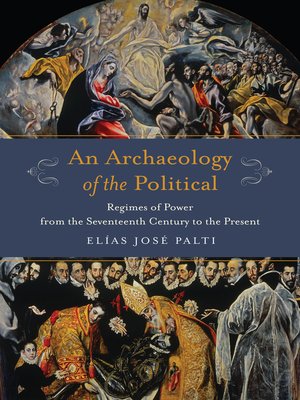An Archaeology of the Political
ebook ∣ Regimes of Power from the Seventeenth Century to the Present · Columbia Studies in Political Thought / Political History
By Elías José Palti

Sign up to save your library
With an OverDrive account, you can save your favorite libraries for at-a-glance information about availability. Find out more about OverDrive accounts.
Find this title in Libby, the library reading app by OverDrive.



Search for a digital library with this title
Title found at these libraries:
| Library Name | Distance |
|---|---|
| Loading... |
In the past few decades, much political-philosophical reflection has been dedicated to the realm of "the political." Many of the key figures in contemporary political theory—Jacques Rancière, Alain Badiou, Reinhart Koselleck, Giorgio Agamben, Ernesto Laclau, and Slavoj iek, among others—have dedicated themselves to explaining power relations, but in many cases they take the concept of the political for granted, as if it were a given, an eternal essence.
In An Archaeology of the Political, Elías José Palti argues that the dimension of reality known as the political is not a natural, transhistorical entity. Instead, he claims that the horizon of the political arose in the context of a series of changes that affirmed the power of absolute monarchies in seventeenth-century Europe and was successively reconfigured from this period up to the present. Palti traces this series of redefinitions accompanying alterations in regimes of power, thus describing a genealogy of the concept of the political. Perhaps most important, An Archaeology of the Political brings to theoretical discussions a sound historical perspective, illuminating the complex influences of both theology and secularization on our understanding of the political in the contemporary world.







